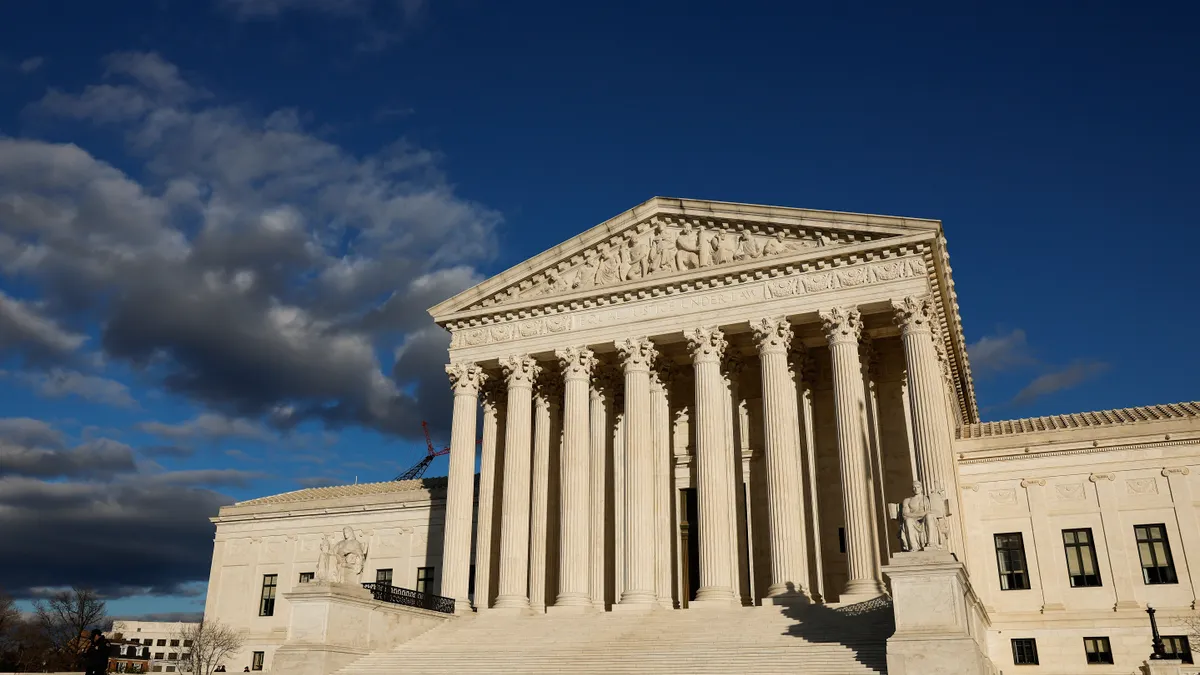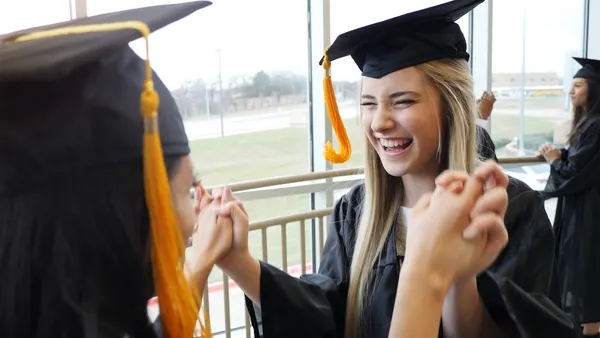Dive Brief:
- A new Colorado state law will allow Denver Public Schools to offer associate degrees through a district-run technical college, expanding postsecondary access for students not on a traditional higher education pathway.
- Emily Griffith Technical College, which is governed by DPS, has previously only granted professional license certifications. But House Bill 1221, signed into law earlier this month, will allow the technical college to also offer an associate of applied science degree — a pathway that will apply only to programs that include a registered apprenticeship in their curriculum.
- Registered apprenticeships provide high-quality career pathways for students through paid, hands-on work in a chosen field. By offering not just a certification but a degree, the district aims to elevate both the workforce and higher education simultaneously.
Dive Insight:
DPS is now the first pre-K–12 public education system in Colorado with the authority to issue a higher education degree.
“This is a transformative moment not just for DPS, but for public education across the country,” said Denver Public Schools Superintendent Alex Marrero in a statement. “By removing barriers between high school, college and career, we’re reimagining what it means to truly prepare students for the future.”
Emily Griffith Technical College is one of three public technical colleges in the state of Colorado. It currently has over 30 programs focusing on fields such as hospitality, skilled trades and computer programming.
While the college’s majority population is adults, it also serves close to 200 concurrent enrollment students who tend to be high school juniors and seniors, said Randy Johnson, executive director of Emily Griffith Technical College.
“From a K-12 lens, this takes a step toward helping us get rid of this split or bifurcated message of college and career,” said Johnson. “I would love to see in a couple of years that our 12th grade students would start to have a more seamless pre-apprenticeship opportunity that rolls on into their full apprenticeship.”
Catherine Imperatore, research and content director for the Association for Career and Technical Education, agreed, saying that the connections between secondary and postsecondary career programs are important for vertical alignment.
“As great as it is to earn postsecondary credit, you have to be able to transfer and articulate that, and sometimes there can be some disconnect between institutions,” Imperatore said.
She added that associate degrees are pretty universally accepted, so it is beneficial for students to be able to leave with that credential in hand rather than having to worry about whether their credits will transfer to whatever college they go to.
Johnson noted that before the bill’s passing, many Emily Griffith students completed apprenticeship programs just a few general education credits shy of an applied associate degree.
“We are the first step, which is often the most important step for students on their higher education journey. [This bill] made it to where this first step into higher education being at a technical college doesn't have to be their last step,” Johnson said. “It opens the door for students to continue on that higher education journey as far as they want to go.”
According to the bill text, Emily Griffith Technical College must submit degree program information to the Colorado Department of Higher Education. Additionally, the degree process must include sufficient general education courses and align with certain occupations.
Johnson said the next step is to create a curriculum for these general education courses by working with the community college system to ensure they remain in alignment with their standards. The college will also work on the placement of the courses in sequence for current apprentices.











